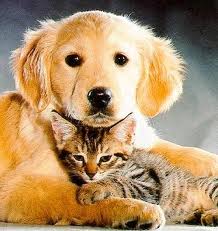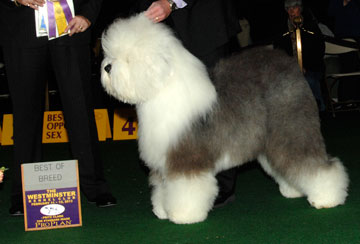
Can how we refer to our pets have negative implications? Should our “pets” be called “animal companions” to better clarify just what they are to their owners? Do shifts in our vocabulary have any correlation to the way we treat animals? According the new Journal on Animal Ethics they do.
“We do need to examine our language about animals because a lot of it is derogatory in the sense that it belittles them and our relations with them,” journal co-editor Andrew Linzey said. The publication questions derogatory terms like beasts, critters and wild animals as well as phrases like “drunk as a skunk” and “eat like a pig”. Linzey is not trying to avoid hurting an animal’s feelings but is trying to examine the way humans perceive animals through verbal characterizations.
“It’s not surprising that researchers are re-examining their language as animal treatment becomes more of a social issue,” said James Serpell, a professor of animal welfare at the University of Pennsylvania’s School of Veterinary Medicine. Serpell however does not necessarily agree with the recommended terminology which he said, “could be taken to absurd extremes. Re-labeling pets ‘companion animals’ could be misleading as well,” Serpell said. “The fish in the ornamental fish tank aren’t really anyone’s companion.”
“More important for respecting animals is how they are perceived and treated in the legal system,” said Susan Cosby, CEO of the Pennsylvania Society for the Prevention of Cruelty to Animals. “Currently animals are considered property regardless of what term we use to describe them,” Cosby said in a statement Wednesday.
Journal co-editor Priscilla Cohn, a philosophy professor emerita at Penn State-Abington near Philadelphia, said “researchers continue to uncover fascinating insights into the animal kingdom, including communication among elephants and the social structure of wolves, which are not the blood-thirsty wild beasts that many people imagine.” “In other words, there has been an explosion of knowledge about animals that should make us consider them in a new light and perhaps changes the manner in which we treat them,” wrote Cohn, who has six cats and a dog.
The Human Society of the United States is endorsing legislation to modernize the language used in states’ animal control laws. Proposed wording would replace “pound” with “shelter” and “destroy” with “euthanize.” “Those words matter,” said Jennifer Fearing, the society’s senior state director.
Serpell said “the debate has been covered previously in various academic journals, stems from animals being in a gray area: they are sentient creatures — more than objects or property — but less than fully human. Yet he acknowledged that inherently derogatory or disparaging language “perhaps makes it easier for us to justify exploiting them.”
The Serpell family has a dog, a cat, three aquaria full of fish, a pair of degus (like small chinchillas) and a bearded dragon. “We call them all ‘pets’ and don’t consider the term denigrating,” he said






[…] anti-pet. Or should I say anti-animal-companion to some of you? Because seriously. Your pet doesn’t give a crap if I call it a […]
Comments are closed.